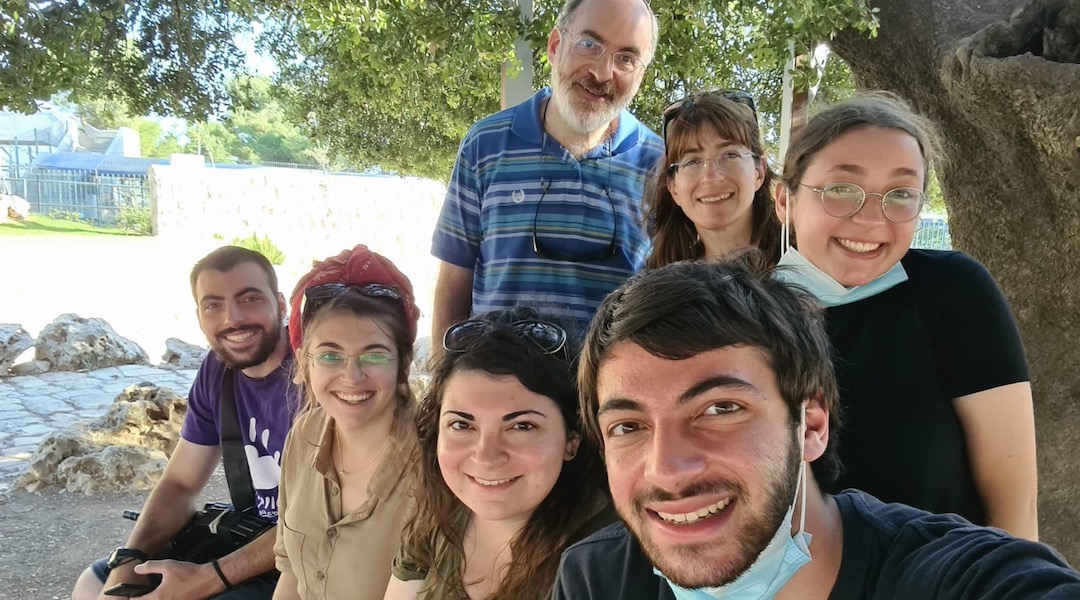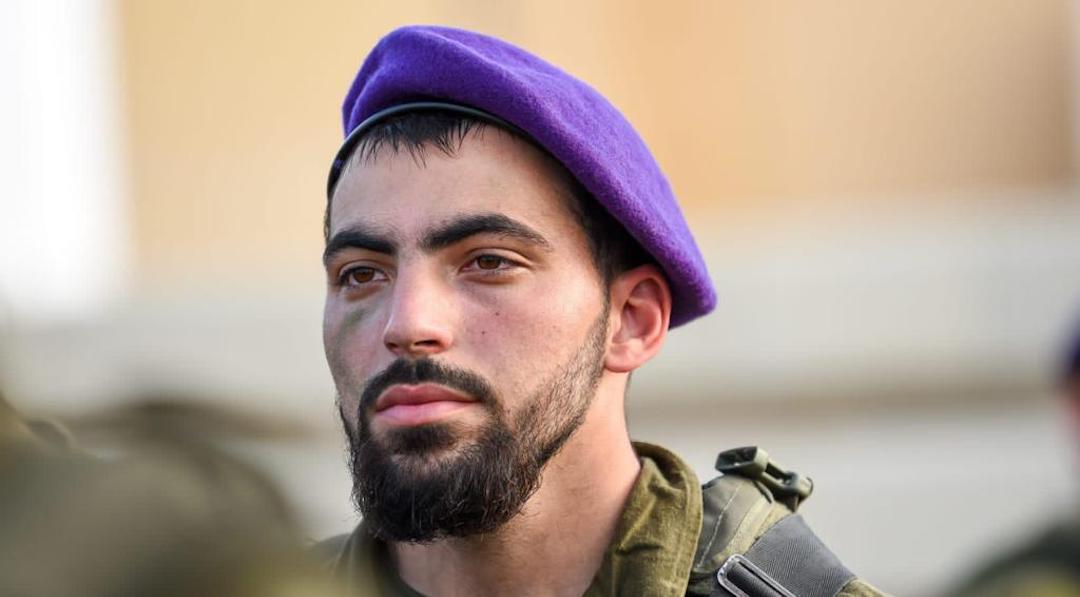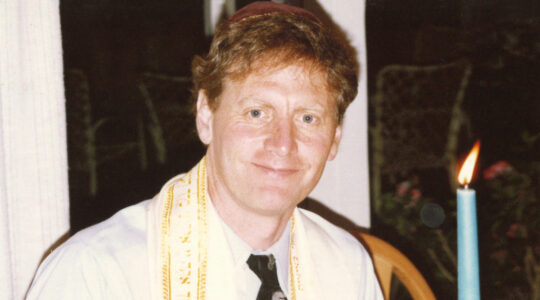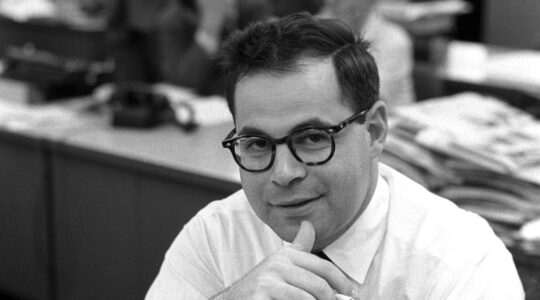(JTA) — Amichai Oster, 24, an Israeli-American touring the United States after his service in an Israeli combat unit, was observing Shabbat and Shemini Atzeret at a Salt Lake City Chabad when Hamas attacked southern Israel on Oct. 7.
“Of all the terrified faces on the morning of October 7th, I remember Amichai’s anguished features distinctly,” the local Chabad rabbi, Avremi Zippel, recalled in an Instagram post. “He needed to go back.”
Oster received an official draft notice while in Salt Lake City and returned to Israel to join the army’s 7020 reserve battalion. On Monday, Oster, a sergeant in the reserves and the son of a former writer and editor of the Jewish Telegraphic Agency, died fighting in the northern Gaza Strip, killed by an explosive device that also injured two other soldiers.
“Amichai did indeed rush here to fight for his country and for all of us,” his mother, Marcy Oster, said at his funeral Tuesday. “He was here doing exactly what he wanted to be doing. He died doing what he came home to do.”
Marcy Oster, who wrote breaking news stories for JTA for more than a decade, and her husband Howard, deputy director of the internal medicine division at Tel Aviv’s Ichilov Hospital, moved to Israel from Cleveland when Amichai was 1. The family lives in the West Bank settlement of Karnei Shomron, in a neighborhood Marcy once described as “overwhelmingly American.”
“Marcy always spoke, and sometimes wrote, so proudly and movingly about her five children and the lives she and her family had made in Israel,” said Ami Eden, CEO and executive editor of 70 Faces Media, JTA’s parent company. “Through her work managing JTA’s news briefs, she helped our readers feel connected to Jewish communities worldwide. Amichai’s death is a tragic example — and a deeply personal one for all of us at 70 Faces Media who worked with Marcy — of the way hearts are breaking in Israel and around the world since Oct. 7.”
Friends and family described Amichai as soft-spoken, charming, ever-smiling and eager to volunteer for those needing his help, including people with special needs.
After his initial army service he spent time traveling in Asia and the United States, a rite of passage for many Israelis post-army. On the road he would frequently sleep in an old Ford Crown Victoria that he bought in Florida. He was slightly embarrassed by the police equipment it retained, including a riot-busting bumper, recalled Ron Kampeas, JTA’s Washington bureau chief, who hosted Oster at his Northern Virginia home last year. Oster also described stopping in a Virginia forest on the fast day of Tisha B’av. His prayers were interrupted by a rattlesnake, a video of which he was proud to share with friends and acquaintances.
“He was interested in everything. If he was curious about something, he searched the internet and read everything he could,” his mother, currently news editor at Ynetnews, recalled in her eulogy. His interests included “music, art, science, photography, animals, plants [and] decorating cakes. He loved his travels both far and near and he loved this land, all of it.” He planned to complete the Israel National Trail, a 683-mile route that traverses the country from north to south. After the war, he also planned to return to the United States and continue his travels, she said, before starting university.

Amichai Oster, far left, with his parents Howard and Marcy (back row, center) and his siblings. (Courtesy of Marcy Oster)
In addition to his parents, Oster is survived by three sisters, Sarah, Emunah and Tova, and a younger brother, Jonathan, a soldier who is serving in southern Israel.
According to the IDF, 175 Israeli soldiers have been killed in combat during the army’s operations in Gaza following the Hamas attacks of Oct. 7.
Among those eulogizing Oster was Igal Lahav, head of the Karnei Shomron Council. “When we speak of incredible, Zionist and value-driven youth who would leave everything behind and rush into the fire to defend the country, we are talking about young people like Amichai,” Lahav wrote on Facebook.
In an essay she wrote on the 10th anniversary of their decision to move to Israel, Marcy Oster recalled that “we knew Israel would be the best place to raise our Jewish children, where they would learn about their Jewish past, participate in their Jewish present and prepare for their Jewish future, and where we would have a front-row seat to Jewish history.”
At Amichai’s funeral, she spoke about a conversation with her oldest son when he was home on a recent two-day leave from Gaza.
“I told them that I felt responsible for the fact that he was fighting in a war and he didn’t make the decision to come on aliyah — that we made it for him,” she said. “He thought about it for a moment and replied, ‘Ima, what makes you think that if you never made aliyah that I would not have come here to fight for our country?’”
JTA has documented Jewish history in real-time for over a century. Keep our journalism strong by joining us in supporting independent, award-winning reporting.






